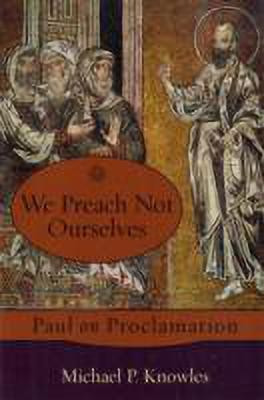We Preach Not Ourselves(English, Paperback, Knowle Michael P.)
Quick Overview
Product Price Comparison
The apostle Paul preached Christ crucified and Christ resurrected. But these two themes provided more than just the content for Paul's preaching; they also provided the shape for how Paul viewed and practiced preaching. Paul's proclamation arose out of and modeled a cross-centered spirituality, which led to the spiritual transformation of both Paul and his hearers. It is this vision, rather than a particular method, that lies at the heart of effective, faithful, gospel-centered preaching. Michael Knowles, a homiletics professor and former pastor, holds up Paul as a model for contemporary preachers by a careful study of 2 Corinthians 1:1-6:13. This study sheds light on Paul's theology of preaching and demonstrates that while preaching, Paul indeed practiced what he preached. EXCERPT Admittedly, to approach homiletics from the perspective of Pauline spirituality is to break ranks with the predominant emphases of current scholarship in at least two regards. Recent homiletical discussion has concentrated more on questions of sermonic form than of content, and thereby appears to take the issue of spirituality more or less for granted.Conversely, studies of Paul's letters by New Testament scholars have concentrated traditionally more on the content of his proclamation than on its method (although recent publications have begun to reverse this trend). The approach taken here is to understand preaching as something more than a convenient vehicle for the promulgation of Pauline theology, and to investigate ways in which the content of that theology entails both a spiritual disposition (an orientation to the reality and activity of God) and a specific homiletical method. Along the same lines, Daniel Patte argues that faithful presentation of Paul's theology--as, indeed, of Christian faith as a whole--amounts to more than simply repeating or "translating" a series of propositional truths. Rather, it requires a conscious "imitation" of Paul's faith experience (as Paul seems to imply in 1 Cor. 11:1). Preaching, says Patte, announces "the power of God for salvation" (Rom. 1:16) that is manifest not only in the death and resurrection of Jesus, but also "in the process of preaching the message" and "in the experience of the hearers." ...To preach on such a model requires one not to "engage" the Pauline text so much as to be engaged by the reality of Christ to which the text bears witness, in the confidence that "the text has the potential and power to disclose to the interpreter a world of its own"--the "world" of God's saving action with Christ as its center.


